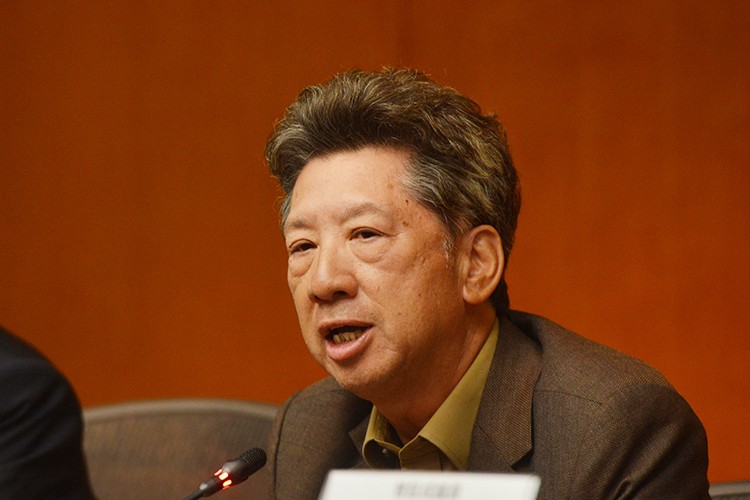Multiple news reports emerged on Tuesday night citing sources saying that China’s top legislative body will issue an interpretation of the Basic Law in order to bar two localist lawmakers from retaking their oaths.
Pro-Beijing tabloid site Bastille Post, owned by the Sing Tao News Corporation, first made reference to a “credible source” saying that the Standing Committee of National People’s Congress (NPCSC) will discuss making an interpretation of the Basic Law on Thursday.

Also on Thursday, Hong Kong’s High Court will hear a legal challenge lodged by the government against the two Youngspiration lawmakers Yau Wai-ching and Baggio Leung Chun-hang. The report claimed Beijing’s interpretation will be made unless the government asks for a postponement of the case.
The report said that the content of the interpretation will be specific, stating that “unusual” oath-taking forms will be banned, and lawmakers must pledge loyalty to Hong Kong Special Administrative Region under the People’s Republic of China.
Oriental Daily then cited government sources as saying that it was a proactive interpretation by the central government, as the Hong Kong government had not made such a request.

The source added that members of the central committee of the Chinese Communist Party discussed the oath-taking controversy at the sixth plenary meeting that ended in Beijing last week. Members were reportedly “extremely angered” by the Yau and Leung incident – which some deemed an insult to Chinese people – thus, an interpretation of the Basic Law was “inevitable.”
In response, Yau and Leung said that if the Chinese Communist Party issues an interpretation of the Basic Law, it would be an instance of direct control over Hong Kong.
“The action of requesting an interpretation is part of the election campaign of Leung Chun-ying – he has handed the future of Hong Kong to the Chinese Communist Party for his re-election,” they said in a statement.
Two articles
TVB also cited a government source as saying that an interpretation was inevitable. The channel cited senior counsel Ronny Tong Ka-wah as saying that the interpretation may involve two Basic Law articles, number 26 and 104.
Article 26 stipulates that “Permanent residents of the Hong Kong Special Administrative Region shall have the right to vote and the right to stand for election in accordance with law.”
Tong said the meaning of “in accordance with law” may be interpreted.

Article 104 stipulates that lawmakers “must, in accordance with law, swear to uphold the Basic Law of the Hong Kong Special Administrative Region of the People’s Republic of China and swear allegiance to the Hong Kong Special Administrative Region of the People’s Republic of China.”
Tong said the interpretation may involve adding clauses to the oath.
Earlier on Tuesday, Chief Executive Leung Chun-ying said he would not rule out the possibility of an interpretation of the Basic Law by the Standing Committee of the National People’s Congress to bar the duo from taking the oath again. The comment received mixed reactions.
On Tuesday evening, Secretary for Justice Rimsky Yuen Kwok-keung said his view was that the matter could be solved within the legal system of Hong Kong.
“I am confident that our court, our judges, could absolutely solve this matter fairly, justly, and professionally – I have not changed my view. I still very much hope that the two court cases triggered by this oath-taking incident could be handled within our Hong Kong legal system,” he said.
Article 158 of the Basic Law states: “The power of interpretation of this Law shall be vested in the Standing Committee of the National People’s Congress.”
